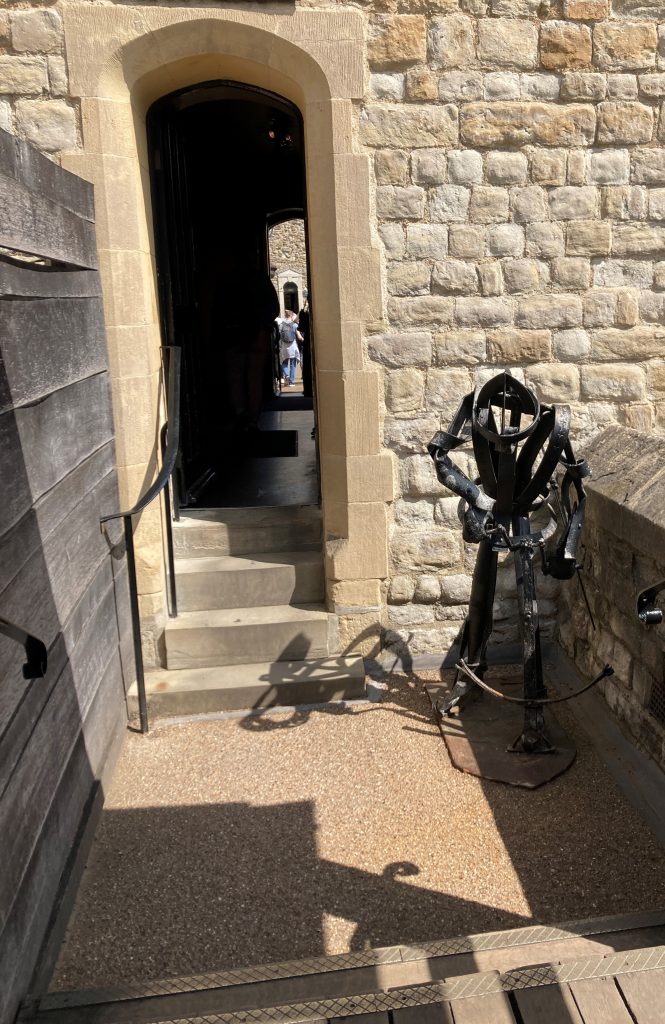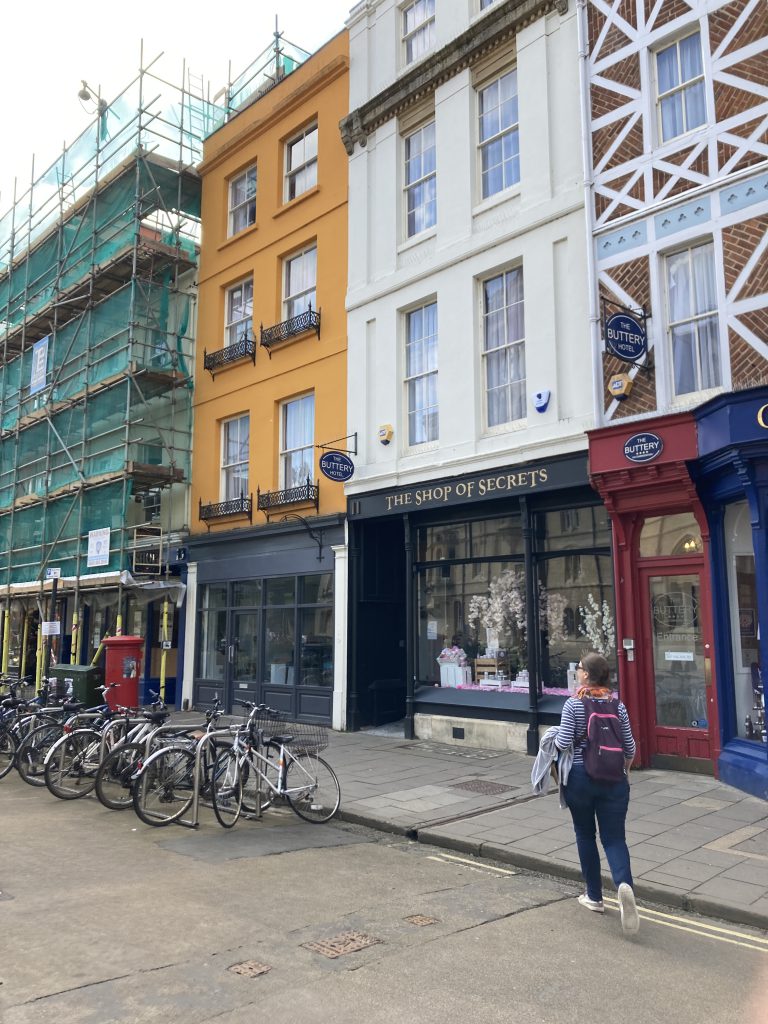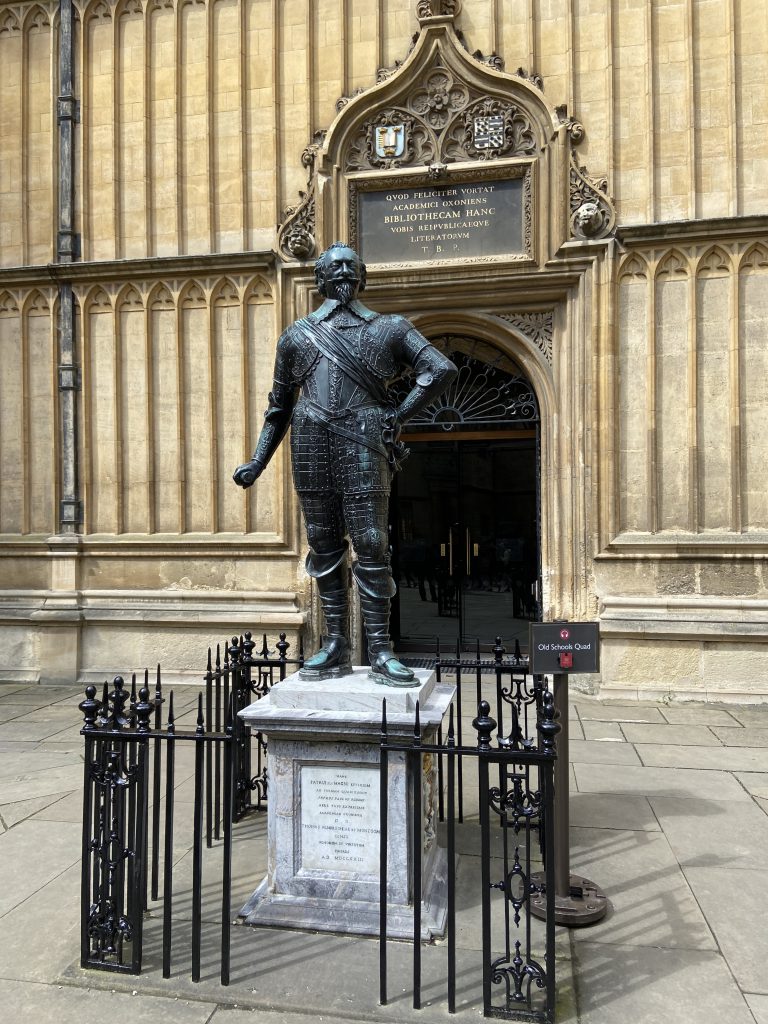My expectations for London were that it was going to be a very traditional and conservative city. Although it is a metropolitan that invites people worldwide to explore itself, media always portrayed English culture in a very stiff manner. Perhaps it’s exclusive to the city, but I was surprised to find large adds in subways about menstruation and sex. I don’t really see anything in Boston or in American, for that matter, quite like it. It was also a shock to see that as soon as I leave the station that I can find churches situated on every corner. In my experience, these “taboo” topics and religion were not openly discussed, let alone publicly coexisting. These topics were handled in very separate spaces. London truly humbled me in breaking down these expectations and it made my experience more enlightening. My understanding of “Englishness” has also broadened and allowed me to see the culture and Shakespeare with a new perspective.
Category Archives: Uncategorized
If you could go back a few weeks, what would you tell your old self to better prepare for the trip? What specifically would you do differently, and why?
During this trip, part of me felt like I was not meant for the experience. To add context, I didn’t know too much about Shakespeare, besides the fact that schools across America love to assign their students these old pages of literature. I never understood how culturally relevant Shakespeare is to today, or why some of the other students gushed as we roamed the streets of Stratford. However, as we continued to explore London and attend the shows, I was able to feel first-hand why Shakespearean plays are so enriching. People take his plays and make multiple variations and it seems to become a whole new story. Theatres and actors question subjects such as social norms and race, adding more and more depth to the experience and storyline. These plays remain relatable and meaningful to all audiences, despite the new themes they take on. Although this trip was not an opportunity for me to indulge in something I’m interested in, it gave me something new I can be interested in.
Exploring Accessibility in London’s Public Spaces
Exploring London allowed me to develop several new perspectives on health, especially in improving my awareness of infrastructural accessibility. As an able-bodied person, I am privileged enough that I do not have to constantly worry about whether a building or mode of transport will meet my needs. Yet so many people rely on accommodations to navigate public spaces. Although the United States still has a long way to go in improving accessibility, I realized how much I took for granted at home.

Physical mobility features such as elevators, ramps, and wide doors appeared far less abundant in London. For instance, it seemed like most tube stations did not have elevators. When they were present, elevators at the stations often were so out of the way that you might have to navigate winding corridors to find them. Beyond just public transportation, London poses several other challenges for people with mobility issues. While its architectural layout displays its rich history, the cobblestone streets, spiral staircases, and narrow buildings do not constitute easy access for all visitors.

All things considered, I think London is actively trying to improve accessibility on several fronts. For instance, there were new signs about priority seating for pregnant mothers and people with disabilities on the tubes. Also, it seemed like many businesses and museums were trying to increase their availability of visual and hearing devices for patrons. Although I did not get a complete picture of the UK’s relationship with accessibility in my two weeks, I think I learned a lot, and I am hopeful that the city will continue to address some of these issues.
London Abroad Experience-3
3. Now that you all have had a chance to digest the Globe experience, I’d like you all to write what it was like to see live Shakespeare in Stratford and the Globe. What did they have in common; what was different? Which made more of an impact on you? What felt relevant to you as a American college student; what felt strange and unfamiliar? After your two weeks in the UK, how would you describe “Shakespeare” to your friends back home?
Having loved Shakespeare most of my life and having to simply imagine the humorous plays to the best of my knowledge, being able to see one of my favorite Shakespeare plays, Much ado about nothing, was like a dream come true. Both the Globe and Stratford were two amazing experiences, they both made me feel utterly engrossed in the play, the way that the Globe basically made the stage a part of the audience and the way Stratford used audience participation, walking through the audience adding humor to the plot. I can’t really say which had a bigger impact on me but rather that they had different impacts on me, emotionally I felt drained, in a good way, after the Globe because I felt as though I had to deal with the same moral issues as the characters. After Stratford I couldn’t feel any pain in my feet because I was simply mesmerized the whole time. As an American engineering student what felt relevant was the stage presence of being able to connect so many people together with simple things such as laughter or sadness, whichever part of what they were saying made them feel that way. As an engineer, I have to consider an audience just as the actors and see through their eyes when creating things. This is how I would describe Shakespeare, as someone who brings people together and creates a common ground to be able to portray serious matters such as civil war and bigotry.
London Abroad Experience-2
2. Now that we’re back in London, what continues to strike you about the Henry VI play? What do you feel was important about that performance?
The most striking thing about the performance of Shakespeare’s Henry VI is that there were no winners and only losers, standing as a striking reminder of what it is to partake in war- that eventually it trickles down to brother against brother. There is no winner in civil war when what you are fighting is yourself, aided by the constant switch in sides during the duration of the play. It showed the internal struggle to identify an enemy because by betraying and hating those you love it feels like the only thing being fought is oneself, causing self inflicted pain in their place. It also shadowed the words of Liam O’Flaherty about the Irish civil war in “The Sniper” perfectly embodying the same sentiments showing that being blinded from seeing one’s humanity can mean that the real enemy is oneself, when the man shot by the sniper is his own brother.
London Abroad Experience-1
- If you could go back a few weeks, what would you tell your old self to better prepare for the trip? What specifically would you do differently, and why?
As an anxious person I tried to overcompensate for all the new things that were to come by staying within a certain bubble of preparation, by which I mean, I tried to isolate myself to preserve energy. I assumed that it would all be out of my hand and that I would have to follow the pace of a clearly defined pathway. This turned out not to be the case at all, in fact the majority of the experience was oriented around what me and my friends wished to do and there were only a couple of hours within the week during which we had to comply with the class requirements which were still extremely enjoyable. All that being said, what I would really like to tell myself a couple weeks ago is that “everything will go much smoother than you think” and “it won’t be draining because it’s a self-paced adventure”. Specifically I would let myself buy more things to bring home because, again, I had extremely anxiously under packed and feared that I would not be able to bring everything home and turned out to have a lot of space left in my suitcase. I would also like to warn my early London-self to not rush through everything and go into the places I wanted to even if it meant stopping the group I was with in order to voice my opinion. Overall, just enjoy yourself, you’re in a different continent, and don’t let others take away from your experience.
Shakespeare Is Everywhere
By: Lizzy Staugler
Being in London was an amazing experience. Being in London and getting to see two different Shakespeare shows was spectacular. The two venues portrayed the shows wonderfully, however the best part was being able to be immersed in the setting and scenes of the plays.
Much Ado About Nothing was probably my favorite of the two. I loved how they adapted it from the original playwright and adjusted it to fit in better with modern times, making it so we would better understand the jokes being made, and allowing for the story to be understood by all, even those who haven’t read the play or struggle to understand Shakespeare in general.
After a couple of weeks in the UK and getting to see and experience all the people and culture around me, I would truly only be able to describe Shakespeare in one way to my friends back home, “everywhere”. Shakespeare can be found everywhere in the UK, in every little nook and cranny you could think of. I found him in places I never would have thought I would see him. Shakespeare has such a hold on the modern world, and is a name almost everyone knows. His influence on today’s society is very strong and will forever continue to grow as his works are adapted again and again.

What does it mean to be English?
When I arrived in London, I expected to be surprised by a lot of things, but I instead found that it was remarkably similar to the United States. People in England have to go to school and work just like we do, they have to buy food just like we do, and the food they eat is similar to ours. People are people and under our global capitalist system, we all have to do the same things to provide for ourselves.
One difference I felt in the UK was that everyone was nicer. It seemed like all of the signs were designed to directly connect with people’s emotions. People are less selfish in the UK than in the US. I suspect this is because of the ideal of individuality in the US. Egocentrism is encouraged by politicians and this rubs off by citizens. I don’t think egocentrism is encouraged very much in the UK.
Perhaps the biggest difference between the US and the UK is the UK’s obsession with royalty. In the UK, you can see “E II R” on every phone booth, books about the Queen line the front shelves of every bookstore, and even advertisements have references to royalty in them. In the US, we only have tabloids about the royal family in grocery stores that nobody looks at. One may argue that the prevalence of royalty in London is due to tourism. This is probably true, but people talk about the royal family seriously in the UK. BBC, the most important news service in the country, has often been talking about Prince Andrew’s association with Jeffrey Epstein. In the US, we have never had royalty, so the British royals family is something for us to point and laugh at.
This is an example of how people are products of their environments. While people in the UK are obsessed with the royal family, us yankees get glued to our TVs whenever it’s time for another presidential election. These things both look stupid from the outside, but we copy what other people are doing, so it is normal to us. When you make fun of other people. don’t forget that you could be made fun of as well.
Shakespeare in Motion
After having a thoroughly amazing trip to London focusing on Shakespeare, I think I now have a better, albeit still more limited than I’d like, view of Shakespeare. During the trip, we saw two productions of Shakespeare’s works: a production of Henry VI Part III and a production of Much Ado About Nothing. These shows are very different, one a comedy and the other an epic historical play, and the productions we saw of both also had very different design philosophies to match.
Henry VI Part III was marketed as a sort of inspiration for Game of Thrones, and the similarities are surprisingly obvious; you can see where George R.R. Martin took inspiration from. This play is not produced very often, but I would say that this production really played up the fights. There were tons of very nicely choreographed fight scenes, with people dying right and left in the super cool gravel pit stage they had built.
On the other hand, Much Ado About Nothing was not in a highly technical theater and was out in the semi-open of the Globe Theatre. We had standing tickets and got a little bit of rain on us, but it was not too bad. This production played up the physical comedy of the play, and there were so many parts of the play that I had not understood/got while reading the text that ended up being just hilarious seeing live. The direction and vision behind this production were just inspiring, in my opinion. The fathers of Hero and Beatrice (the two leading ladies) were instead played by two women as mothers, and this change added so much to the play. There were so many scenes where the jokes and shenanigans just made so much sense with them as mothers instead of fathers. I found myself forgetting they were ever fathers in the first place, and I wondered how this play could be performed any other way! The direction and acting were both simply rife with fun in this production. There was so much joy in the performers, and this was shared with the audience even more through audience participation. This was a thoroughly enjoyable production that took what I had construed as an unfunny text that might’ve been funny 500 years ago to a hilarious romp through post-WWII Italy (I forgot to mention they changed the setting too).
Both of these productions were very different in almost every way, yet they found new ways to adapt Shakespeare’s works which have lasting impact. Although we don’t have kings in the same sense anymore, Henry VI Part III is still a super entertaining and epic tale of battle and succession. A play which also shows how the actions/inaction of leaders and other political figures can lead to Civil War and turmoil. Meanwhile, Much Ado About Nothing is not entirely outdated and can be played around with to bring new life into the ancient words! Overall, both of these productions were a joy to see, and through changing up certain aspects and casting diverse and differently-abled actors, these classics can remain relevant and continue to inspire audiences.
Shakespeare All Around
During the trip early on, I was reminded that Shakespeare can be found in all parts of modern life, especially in the United Kingdom. A few days into the trip, we were touring the British National Gallery, and I noticed a striking image. Upon further investigation, I found it to be titled “Ophelia among the Flowers,” created by Odilon Redon in the early 1900s.

This painting immediately stuck out to me. The hazy, dreamlike quality of this depiction of Ophelia captures some interesting elements of the scene. Ophelia’s death in Shakespeare’s Hamlet is a highly recognizable and renowned one, and much has been said and debated over the years. Whether or not it was purposeful, did she fall or jump? Was Ophelia really “mad,” and how much agency did she have in her actions? The scene still elicits many questions for me. This painting seems to reflect this. The proto-surrealism style evokes questions with the abstract portrayal of Ophelia floating amongst the flowers. Although I am not very familiar with the finer mechanics of this type of art, I still find it intriguing to observe and connect the piece with the Shakespearean work that inspired it. Doing a tiny bit of research, I found a quote by Redon that describes his art well: “My drawings inspire and are not to be defined. They place us, as does music, in the ambiguous realm of the undetermined.” I was a little surprised to see reference to Shakespeare in the gallery; however, this inspiring painting helped me to connect visual arts with Shakespeare’s writing/theatre.
